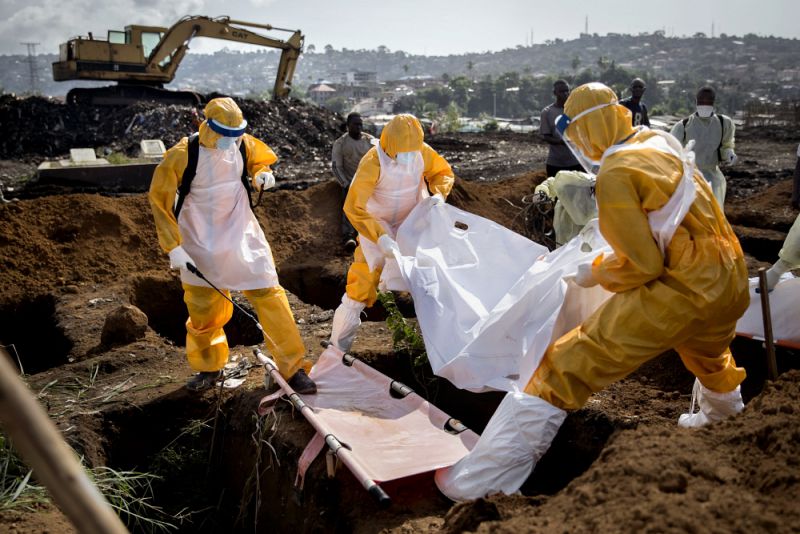By: Anita Makri
Send to a friend
The details you provide on this page will not be used to send unsolicited email, and will not be sold to a 3rd party. See privacy policy.
A picture of music icon David Bowie popped on the screen halfway through a series of talks at the Royal Society yesterday, reflecting on the Ebola outbreak in West Africa. The caption was “nothing has changed”, taken from one of Bowie’s albums. Oyewale Tomori, president of the Nigerian Academy of Science, used the phrase cleverly to ask the audience in London how we can avoid sitting in the same room 20 years from now debating the same issue.
It’s a question that’s at the heart of what learning from the Ebola crisis should be about.
I found it encouraging that later on, one of the talks about how we might respond to a similar crisis referred to being more “nimble”. It struck me as one of the answers to that question — and is in step with conclusions drawn from our analysis of social responses and communications during the West Africa epidemic.
When there is uncertainty about what to expect and what will work in response, and when things don't go quite as planned, it seems the answer is to be nimble.
Anita Makri, SciDev.Net
Maria Freire, president of the US Foundation for the National Institutes of Health, spoke of the need to become nimble in our ability to do R&D in an emergency. How do we develop the right tools, she asked, when we don’t know which disease will become the next crisis, when it will occur and where?
Freire is part of an independent international commission on which yesterday’s discussion was focused: the Commission on a Global Risk Framework for the Future, managed by the US National Academy of Medicine and actively working on a report for improving global health governance.
Her remarks focused on the challenge of having the tools needed to face a health emergency — the global capacity to research, manufacture and deploy drugs, vaccines, diagnostics and protective equipment — but struggling to make them available on time. Reporting on the commission’s working group, Freire raised the possibility of putting in place a system similar to the one for seasonal flu, where vaccine formulations are adapted to the genetic make-up of influenza viruses circulating each year.
I caught up with Freire after the talk to find out more about the group’s thinking behind this. She pointed out that anything deployed during an emergency has been in the works for some time — so it makes sense to have an inventory of what’s available as soon as the World Health Organization gets a credible epidemic alert.
But discussions on this and other governance issues are ongoing, she said. The final report is planned for release in January at the World health Assembly executive board meeting.
Freire’s thoughts echoed remarks about the role of preparedness made earlier by the commission’s chairman Peter Sands, a British banker and senior fellow at the Harvard Kennedy School in the United States. Sands made an intriguing parallel with the global financial crisis, pinpointing three lessons learned that also apply to Ebola.
Listening to this I pondered the fact that preparation can be static, based on set scenarios and predictions, or it can be adaptable. When there is uncertainty about what to expect and what will work in response, and when things don't go quite as planned, it seems the answer is to be nimble.














